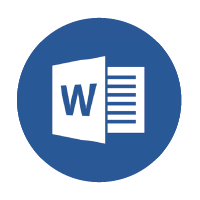Section Policies
Articles
Publication Frequency
Wilangan: Jurnal Inovasi dan Riset Pendidikan Matematika
Short journal title: Wilangan
For every years, Number 1-4 are scheduled for publication (Maret, Juni, September and December).
Wilangan: Jurnal Inovasi dan Riset Pendidikan Matematika is electronically published via journal website (http://jurnal.untirta.ac.id/index.php/wilangan/index).
Wilangan: Jurnal Inovasi dan Riset Pendidikan Matematika is published by Program Studi Pendidikan Matematika, FKIP Universitas Sultan Ageng Tirtayasa.
Open Access Policy
This journal provides immediate open access to its content on the principle that making research freely available to the public supports a greater global exchange of knowledge.
Publication Ethics
Jurnal Wilangan: Jurnal Inovasi dan Riset Pendidikan Indonesia is a peer-reviewed online journal that upholds ethical publishing practices for all parties involved in its publication process. This includes authors, editors, reviewers, and the publisher—Department of Mathematics Education at Sultan Ageng Tirtayasa University. The journal adheres to the ethical standards outlined in the COPE Best Practice Guidelines for Journal Editors.
Ethical Guidelines for Publication
Publishing in Jurnal Wilangan plays a crucial role in building a reliable and respected body of knowledge. Articles published reflect the quality of the research and the supporting institutions. Since peer-reviewed content supports the scientific process, maintaining high ethical standards is essential for everyone involved in the publishing cycle.
As the publisher, the Department of Mathematics Education at Sultan Ageng Tirtayasa University is committed to overseeing the integrity of the publication process. They ensure editorial decisions remain unbiased by financial or commercial interests and will cooperate with other publishers or journals when necessary.
Editorial Responsibilities
Editors are responsible for selecting articles for publication based on their relevance and scholarly merit, guided by editorial policy and legal considerations such as defamation, copyright, and plagiarism. They may consult other editors or reviewers when needed.
Impartiality: Editors evaluate submissions solely on their academic value, regardless of the authors' background.
Confidentiality: Editors and staff must keep all manuscript details confidential and only share information with relevant individuals.
Conflict of Interest: Editors must not use unpublished content from submissions in their own work without written consent from the authors.
Reviewer Responsibilities
Reviewers contribute to the editorial process by evaluating submissions and providing constructive feedback to authors.
Timeliness: Reviewers should decline if they are unqualified or unable to review promptly.
Confidentiality: Manuscripts must be treated as confidential and not discussed with others unless authorized.
Objectivity: Reviews must be impartial and supported by clear arguments, avoiding personal criticism.
Acknowledging Sources: Reviewers should point out any uncited relevant research and alert editors to any overlap with existing publications.
Conflicts of Interest: Reviewers must not use information from manuscripts for personal gain and must avoid reviewing work where they have a conflict of interest.
Author Responsibilities
Authors are expected to present their research truthfully and comprehensively.
Accuracy and Integrity: Research reports must be precise, with sufficient detail for replication. Deliberate misinformation is unethical.
Data Transparency: Authors should be ready to provide underlying data for review and, if possible, public access.
Original Work and Plagiarism: Submissions must be original, and any use of others’ work must be clearly cited.
Avoiding Duplicate Submissions: Authors must not submit the same research to multiple journals.
Proper Citation: All influential sources must be properly acknowledged.
Authorship Criteria: Only individuals who significantly contributed to the research should be listed as authors. All co-authors must agree to the final version and its submission.
Hazards Disclosure: Any dangerous elements in the research must be clearly identified.
Conflict of Interest: Authors should disclose any financial or personal connections that could influence their work.
Correcting Mistakes: If a major error is found after publication, authors must promptly inform the editor and assist with corrections or retractions.

